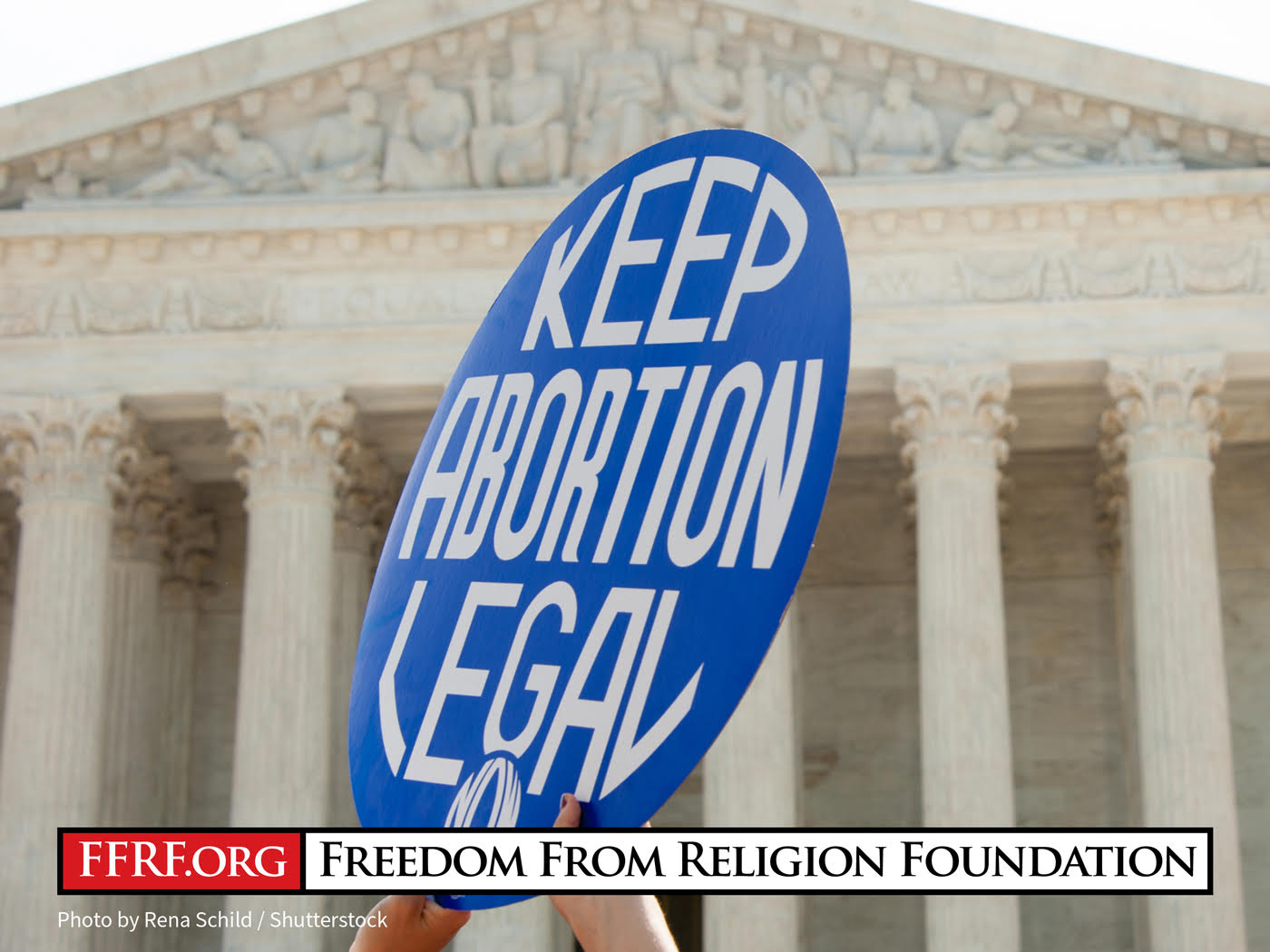
The Freedom From Religion Foundation commends the U.S. Supreme Court for striking down an unconstitutional Louisiana provision that would have effectively outlawed abortion in the state.
In a 5-4 decision in June Medical Services v. Russo issued today, Chief Justice John Roberts joined the court’s more liberal justices to overturn an onerous Louisiana law (Act 620) intended to shut down clinics. The law, part of a series of anti-abortion legal attacks known as TRAP (targeted restrictions on abortion providers) laws, required physicians who provide abortions to unnecessarily hold “active admitting privileges” at a hospital located within 30 miles of the clinic. The law was virtually identical to a Texas provision quashed by the high court only four years ago in Whole Woman’s Health v. Hellerstedt, in which the court had decided the restriction constituted a medically “undue burden” on abortion access.
After continuing to enforce this law in defiance of the Supreme Court’s ruling in Whole Woman’s Health, the state was counting on a change in the composition of the court yielding an overturning of settled law. Justice Anthony Kennedy, who had voted to uphold abortion rights previously, has been replaced by archconservative Roman Catholic Brett Kavanaugh since the 2016 decision.
“Thankfully, the court today did not bend to the political whims of the Religious Right and honored its own precedent to preserve reproductive freedom,” says Annie Laurie Gaylor, co-president of the Freedom From Religion Foundation.
Justice Stephen Breyer’s opinion, joined by Justices Elena Kagan, Sonia Sotomayor and Ruth Bader Ginsburg reads:
Given the facts found, we must also uphold the district court’s related factual and legal determinations. These include its determination that Louisiana’s law poses a “substantial obstacle” to women seeking an abortion; its determination that the law offers no significant health-related benefits; and its determination that the law consequently imposes an “undue burden” on a woman’s constitutional right to choose to have an abortion. We also agree with its ultimate legal conclusion that, in light of these findings and our precedents, Act 620 violates the Constitution.
While Roberts’ concurrence officially made him the deciding swing vote striking down this unconstitutional law, his reasoning signals a troubling future for the landscape of abortion rights in states across the country. He writes: “I joined the dissent in Whole Woman’s Health and continue to believe that the case was wrongly decided. The question today, however, is not whether Whole Woman’s Health was right or wrong, but whether to adhere to it in deciding the present case.”
This opinion, along with the dissents of Justices Kavanaugh, Samuel Alito (with Neil Gorsuch joining) and Clarence Thomas, acts as a chilling reminder that while today’s victory is cause for celebration, there remains a conservative majority on the Supreme Court that wants to restrict access to legal abortion.
FFRF joined 71 other groups in filing a friend-of-the-court brief in the case, which argued that the court must take into account the economic and social circumstances of the women who will suffer the negative consequences of denial of abortion access. The brief, authored by the National Women’s Law Center, asserted that abortion restrictions like those in Louisiana limit women’s autonomy and dignity. It also highlighted the physical impact on women, pointing out: “Forcing women and others who can become pregnant to carry a pregnancy threatens their health, safety, and bodily autonomy, often with grave results.”
Admitting privileges laws, including the one at the center of this case, are widely opposed by medical experts, including the American College of Obstetrics and Gynecology and the American Medical Association, because they are medically unnecessary. States that impose such restrictions actually intend to erect obstacles to accessing abortion care.
Men outnumber women 6-3 on the high court, and Catholics dominate it, with five of the nine-member court identifying as Catholic (of them, Sotomayor is a liberal). The court’s conservative Catholics — with the exception of Roberts — voted as a bloc in favor of Louisiana’s TRAP law. (Gorsuch, who voted with the group, was raised Catholic, but reportedly attends an Episcopal church.)
While U.S. women’s reproductive rights dodged a bullet today, there is no question that the religiously motivated “antis” will continue their legal war to overturn Roe v. Wade, as demonstrated by the fact that eight states passed laws to ban the procedure in 2019 alone.
The legal battles over abortion are far from over.

